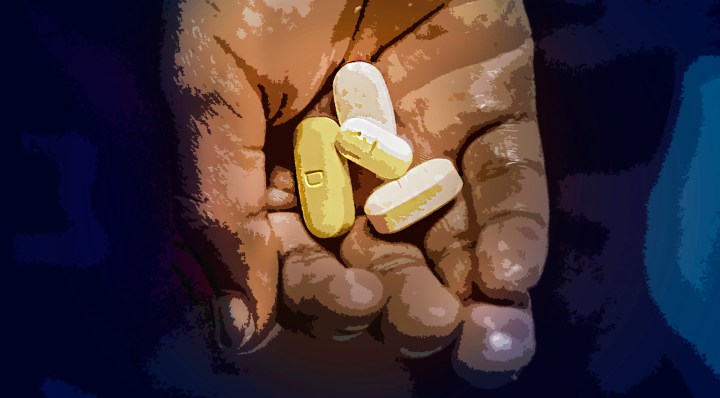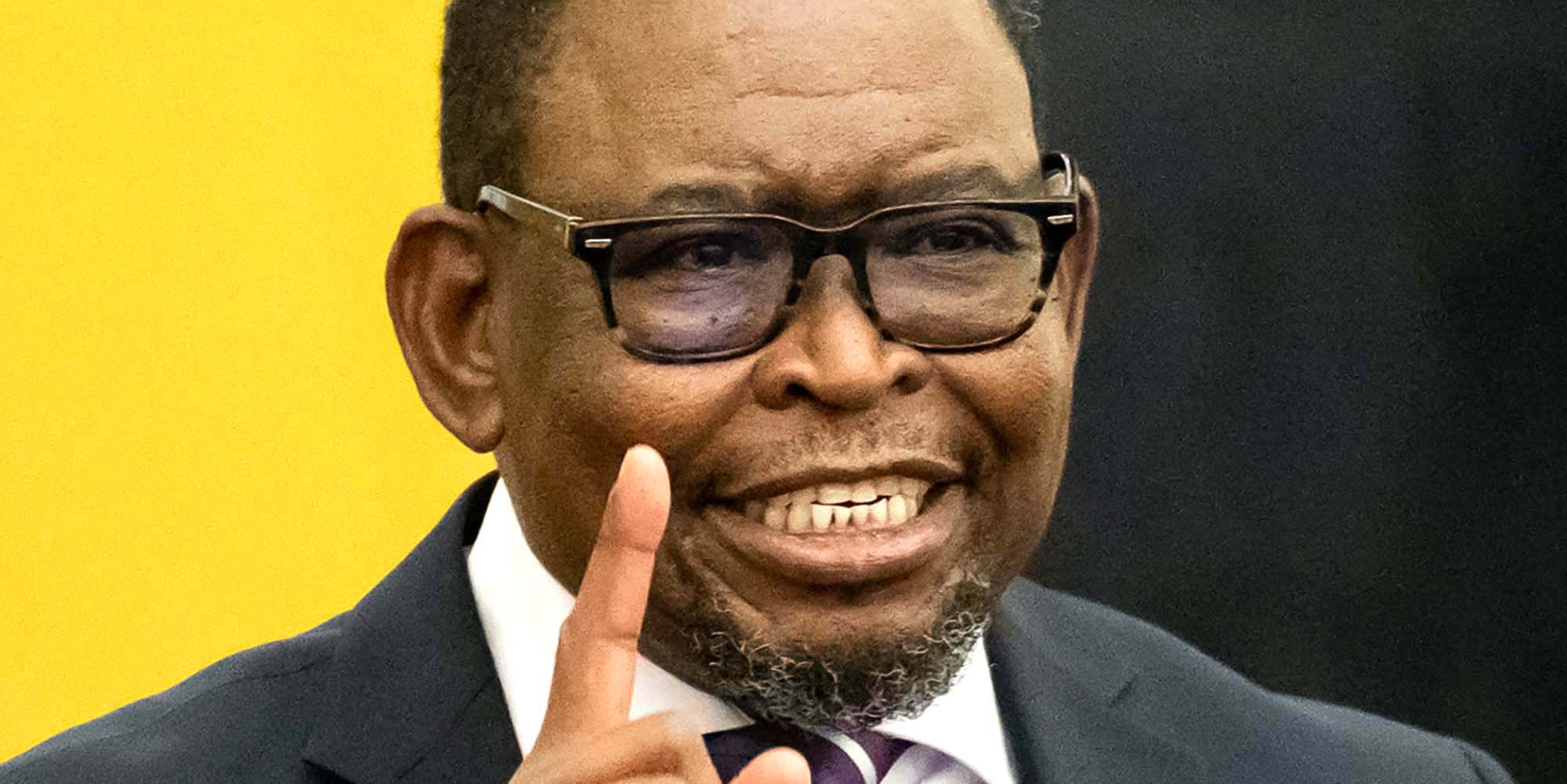SPOTLIGHT OP-ED
Despite some positives, the Budget falls short in dealing with South Africa’s health challenges

As we transition to a different strategy in the management of the Covid-19 pandemic and look to build up better, there was an expectation that the Budget tabled this week would provide insight into the government’s plans and strategy to address the gaps left by Covid. Spotlight looks at some of the Budget’s healthcare hits and misses.
South Africa is one of the most unequal societies in the world. This inequality extends beyond mere income inequality and permeates all aspects of society, including our health system. It is not merely the competition for resources between parallel private and publicly funded health systems, but also within each system, as there is little correlation between the health services we provide and the broader healthcare needs of the population.
The pandemic made these fissures more pronounced and gobbled up huge chunks of our resources for health. Now, as we transition to a different strategy in the management of the pandemic, the crisis and uncertainty that characterised the early stages may no longer be with us, but it will take time, resources and strategic refocusing for us to navigate our way through the devastation that Covid caused.
In March 2020, it was estimated that around 40,000 people would die from Covid-related complications. We knew at the onset of the pandemic that our disease burden characterised by a largely uncontrolled diabetes epidemic, a high burden of TB, as well as over eight million people living with HIV – exacerbated by 10 years of under-investment in our health system – would present a particular risk to our population.
Two years later, the official death toll from Covid-related mortality is over 100,000. The unofficial or excess death rate is edging on 300,000.
Wassila Jasatt and colleagues using hospital data collected as part of the Datcov project investigated hospital-based Covid deaths between March 2020 and March 2021 and found the leading comorbidities, as expected, included age, hypertension and diabetes.
Further research is required on the distribution of excess deaths.
Available testing data suggest that most tests were administered in private sector labs, which could indicate comparatively poor testing rates in the public sector clinics, with patients possibly choosing to not access treatment or accessing treatment too late. It raises questions about the extent to which health system responsiveness might have been the most significant driver of Covid mortality.
Non-Covid related challenges
The uncertainty and fear attached to Covid had an unintended impact on other routine healthcare services. TB is the leading cause of death even though 90% of TB-related deaths are avoidable.
Sharp drops in TB screening and case-finding contributed to poor TB treatment outcomes and, for the first time in over a decade, HIV testing also showed sharp declines, while initiation into treatment showed a decline in the early stages of the pandemic. Routine immunisations are also reportedly down.
Now, as we look to build up better, there was an expectation that the Budget would provide insight into the government’s plans and strategies to address these gaps left by Covid.
Budgets are not just all about the numbers. The numbers on their own mean nothing. It is only when we consider the choices that underpin the numbers that we begin to see what government prioritises.
Reading the news headlines a day after Finance Minister Enoch Godongwana delivered his Budget speech, there seems to be widespread approval of his commitment to stabilise public finance and implement structural reforms to facilitate inclusive economic growth.
A primary surplus is pencilled in for the 2023/24 fiscal year almost a year ahead of schedule.
Godongwana provided additional support to working South Africans in the form of tax rebates amounting to R13.5-billion. Big business benefitted from a 1% reduction of corporate income tax, with the government foregoing R2.5-billion in revenue.
Government also forgoes a further R3-billion in revenue by not increasing the fuel levy. In total, the rebates amount to R17-billion rand.
At what cost?
Fiscal policy and its relationship to government’s constitutional obligations to maintain and advance socioeconomic rights continue to be a site of struggle.
It is the division of revenue that, under current policies, government can and must prioritise for the progressive realisation of socioeconomic rights.

Finance Minister Enoch Godongwana delivers the national Budget speech at the Good Hope Chamber at Parliament in Cape Town on 23 February 2022. (Photo: Gallo Images / Jeffrey Abrahams)
The division of revenue outlines how revenue is shared between the various spheres of government: the responsibility for health is shared between the national department and provincial departments of health. National allocations include conditional grants for several health system priorities which are managed at the national level and transferred to provinces.
While the national health budget is maintained at 2021 levels, allocations decrease in the subsequent years. The declines are likely driven by ending Covid-related costs, which are expected to subside. This will leave little room for new allocations to strengthen the responsiveness of the system to health inequities unmasked during the pandemic.
Provincial governments are the main implementers of healthcare services which, together with education, make up 75% of provincial equitable share transfers. While there are small increases to the equitable share, these are primarily to make funding shortfalls in the compensation of employees, as well as to fund the Covid-19 response.
There is no new funding to support the strengthening of primary healthcare which is essential to reversing the regression in access to TB screening and testing, closing the diabetes treatment gap, protecting and advancing the HIV treatment programme, as well as the responsiveness of sexual and reproductive health services.
It also means there will be no money to employ additional healthcare workers – moratoriums on new recruitments are likely to continue. In the absence of clear prioritisation criteria that place those with the least coverage at the centre of healthcare delivery, we will see further regression in effective coverage.
But all is not lost.
Funding NHI projects
There are opportunities to improve the responsiveness and the sustainability of publicly funded healthcare. Good governance depends on access to good information.
The R175-million allocated under the National Health Insurance Conditional Grant to strengthen health management information and health technology assessment could improve and ensure better use of existing funds to advance universal health coverage and accountability.
If managed well, the R2.2-billion allocated to provincial health departments, together with the R275-million allocated to fund NHI demonstration projects, can support provinces to strengthen district health services and improve health system responsiveness.
There have been some challenges in spending in the past, but the appointment of the deputy director-general responsible for the NHI creates an opportunity to use these funds to act as a catalyst for the strengthening of health systems.
Healthcare is a people-driven business, and the government has invested significant amounts in the training of healthcare professionals. Stretched provincial budgets have delayed the statutory obligations for employing medical interns and community service professionals. The additional funding of R1.2-billion to meet these obligations are welcome and presents an opportunity to reflect on how these posts (community service) are distributed.
If well planned and coordinated, it can help address the unequal distribution of staff between and within provinces. The National Human Resources for Health Strategy provides some options on how this can be done to ensure equity.
With the 2022/23 budget, the HIV/Aids and TB grant is reorganised to focus on HIV and TB services, and the community outreach component of the grant is renamed as the district health programme grant.
While the name change may suggest a different approach to how the fund is disbursed, this presents an opportunity to refocus these programmes and strengthen implementation.
At this stage, it is unclear what safeguards will be introduced to limit the abuse of public funds, given the additional flexibility afforded to health officials to move funds between items
In conclusion, the impact of the decisions made in this Budget, and government’s understanding of its constitutional obligations in the progressive realisation of socioeconomic rights, is deeply concerning.
Given the trust deficit between the public and government after years of corruption and maladministration, navigating us out will require collaboration between civil society partners, health users and Parliament to refocus the healthcare system towards the achievement of universal health coverage. DM/MC
Russel Rensburg is the Director of the Rural Health Advocacy Project (RHAP) and a member of the Budget Justice Coalition.
This article was published by Spotlight — health journalism in the public interest.





















 Become an Insider
Become an Insider
Comments - Please login in order to comment.